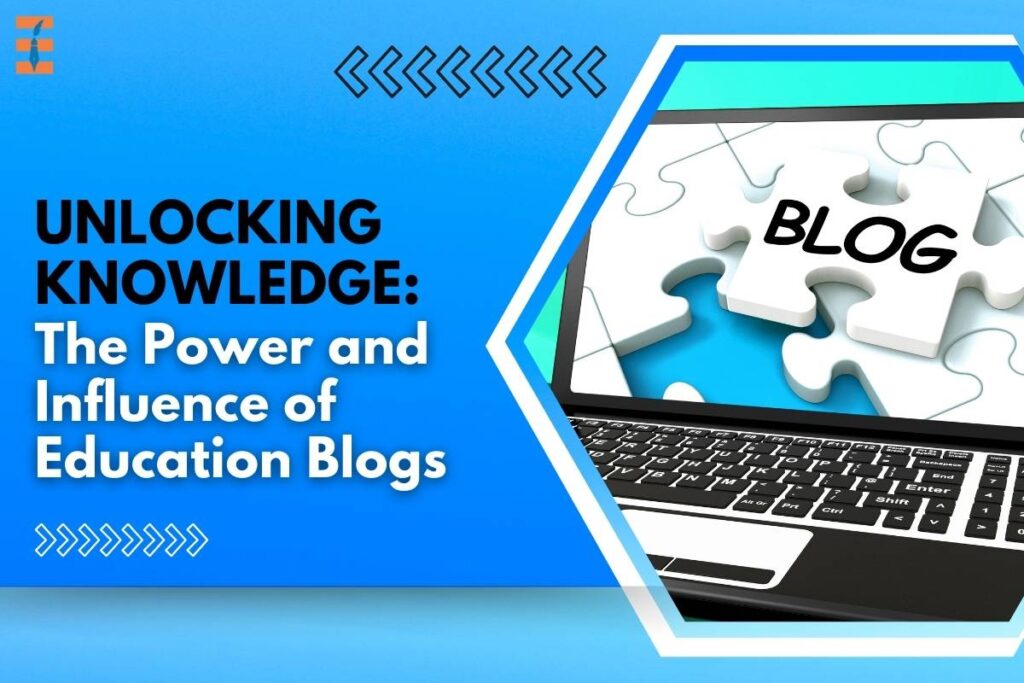In today’s digital age, information is readily available at our fingertips. With the rise of the internet and social media platforms, accessing knowledge has become easier than ever. One of the most powerful mediums for sharing information and insights on education is through blogs. Education blogs have revolutionized the way we learn, teach, and engage with educational content. In this article, we will delve into the world of education blogs, exploring their impact, benefits, and the top blogs shaping the educational landscape today.
Understanding Education Blogs
Education blogs are online platforms where educators, scholars, experts, and enthusiasts share their knowledge, experiences, and perspectives on various aspects of education. These blogs cover a wide range of topics, including teaching strategies, educational technology, curriculum development, classroom management, professional development, and more. They serve as valuable resources for teachers, students, parents, administrators, and anyone interested in education-related issues.
The Impact of Education Blogs
1. Professional Development

Education blogs play a crucial role in the professional development of educators. They provide valuable insights into innovative teaching methods, classroom strategies, and educational trends. Teachers can learn from the experiences of others, discover new resources, and stay updated with the latest developments in the field.
2. Global Reach
One of the most significant advantages of education blogs is their global reach. Educators from different parts of the world can connect, collaborate, and exchange ideas seamlessly through online platforms. This global network fosters creativity, diversity, and cross-cultural learning experiences.
3. Resource Sharing
Education blogs serve as treasure troves of educational resources. From lesson plans and worksheets to interactive apps and multimedia tools, bloggers often share valuable resources that can enhance teaching and learning outcomes. This culture of resource sharing benefits educators at all levels, from novice teachers to seasoned professionals.
4. Community Building
Blogging creates communities of like-minded individuals passionate about education. These communities offer support, encouragement, and mentorship opportunities for educators. Through comments, forums, and social media interactions, bloggers and readers engage in meaningful discussions, share feedback, and build professional relationships.
5. Influence and Advocacy
Many education bloggers are influential voices in the education sector. They advocate for educational reforms, equity, inclusion, and pedagogical innovation. Bloggers can raise awareness about important issues, challenge conventional practices, and inspire positive changes in education policy and practice.
Benefits of Engaging with Education Blogs
1. Continuous Learning

Reading education blogs allows educators to engage in continuous learning. They can explore new ideas, perspectives, and strategies that can enhance their teaching effectiveness and student engagement. Blogs also encourage reflective practices, prompting educators to assess their own teaching methods and beliefs.
2. Networking Opportunities
Engaging with education blogs opens doors to networking opportunities. Educators can connect with fellow professionals, industry experts, thought leaders, and potential collaborators. Networking through blogs, social media, and online forums can lead to collaborations on projects, conference presentations, and professional development initiatives.
3. Access to Diverse Perspectives
Education blogs showcase a diverse range of perspectives, experiences, and voices. Readers gain insights into different teaching philosophies, cultural contexts, and educational challenges from around the world. Exposure to diverse perspectives fosters empathy, cultural competence, and inclusive teaching practices.
4. Stay Updated
The education landscape is constantly evolving with new technologies, research findings, and pedagogical approaches. Education blogs keep educators informed about the latest trends, best practices, and emerging issues in education. Staying updated is essential for maintaining relevance and adaptability in today’s dynamic educational environments.
5. Inspiration and Motivation
Reading success stories, innovative practices, and motivational content on education blogs can inspire and motivate educators. Bloggers often share personal anecdotes, overcoming challenges, and celebrating achievements, which resonate with readers and renew their passion for teaching and learning.
Top Education Blogs Shaping the Educational Landscape
1. Edutopia
Edutopia is a widely recognized education blog that focuses on innovative teaching practices, educational technology, and school reform. It offers a wealth of resources, articles, videos, and case studies for educators, administrators, and parents interested in transformative education.
2. TeachThought

TeachThought explores critical thinking, creativity, and student-centered learning strategies. It features articles, podcasts, and resources that encourage educators to rethink traditional teaching methods and promote deeper learning experiences for students.
3. MindShift
MindShift, an initiative of NPR, delves into the intersection of technology, psychology, and education. It examines how new technologies and insights into brain science can impact teaching, learning, and educational equity.
4. Cult of Pedagogy
Cult of Pedagogy, run by Jennifer Gonzalez, offers practical advice, teaching strategies, and resources for K-12 educators. Gonzalez’s engaging writing style and evidence-based approach make this blog a favorite among teachers seeking actionable ideas for their classrooms.
5. The Learning Network (New York Times)
The Learning Network provides teaching and learning resources based on New York Times content. It offers lesson plans, writing prompts, quizzes, and interactive features that connect current events to educational concepts, making learning relevant and engaging for students.
6. EdSurge
EdSurge focuses on the intersection of education and technology. It covers edtech trends, product reviews, teacher guides, and news articles relevant to educators and educational technology enthusiasts.
7. Education Week
Education Week is a comprehensive source of news, analysis, and opinion pieces on education policy, practices, and trends. It covers a wide range of topics, from early childhood education to higher education, making it a valuable resource for education professionals and policymakers.
Conclusion
Education blogs have transformed the educational landscape by democratizing access to knowledge, fostering global communities, and promoting innovative teaching practices. Educators, students, parents, and stakeholders in education can benefit greatly from engaging with and contributing to education blogs. By staying informed, sharing experiences, and collaborating with peers worldwide, we can collectively drive positive changes and improve learning outcomes for generations to come. Unlocking knowledge through education blogs is not just a trend but a powerful catalyst for educational excellence and equity.
Also Read: 7 Essential Questions About AI for Teachers to Consider










